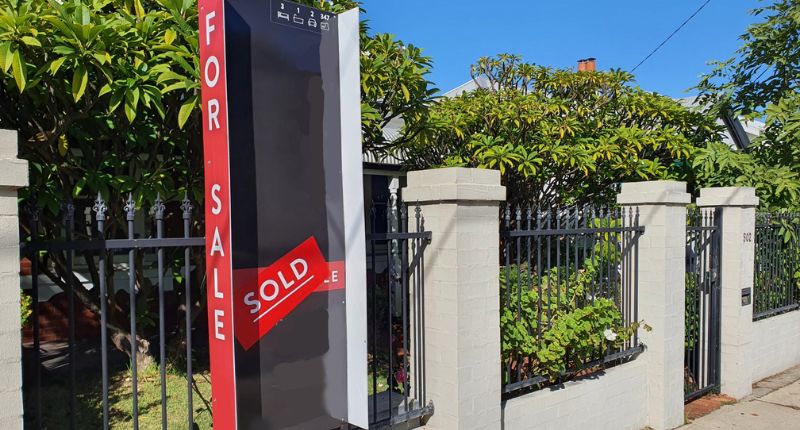- Short-term home resales in Australia have surged to a 15-year high.
- Factors behind the trend include profit opportunities and regional migration.
- Short-term listings more prevalent in regional areas and states with strong capital gains.
Australia’s property market is seeing homes fly off the market in record time, with the latest from CoreLogic showing short term resales are at record highs. CoreLogic data pointed to a whopping 16% of homes being listed after being owned for under three years. This is the most significant proportion of short-term resales since 2008 and twice the 15-year average.
Portion of new listings held for less than three years (Australia-wide, all dwellings)

Why are people selling their homes so quickly?
Homes sell in under three years for a range of reasons, including:
- ‘Flipping’ homes, meaning a home is purchased, renovated, and sold quickly at a profit,
- Making significant capital gains, and
- Moving for work or personal reasons.
Report author, Eliza Owen, added that in a tough economic environment, sales due to mortgage serviceability may also be among the reasons.
A spike in short-held listings is noticeable from around May 2022, when the cash rate target began marching upward from record lows. Tracking this trend was the skyrocketing rate of short-term resale losses, with loss-making short-term resales having almost tripled over 2023.
Another explanation for the trend was that Australians returned to the city after moving to the regional areas during the COVID-19 pandemic. The COVID-19 pandemic saw internal migration to the regions reach record levels as Australians packed their bags, opting for a change of scenery.
There was a substantially higher proportion of short-held listings in regional Australia than in the capital cities, comprising 20.5% of new listings added to the market to August 2023.
Portion of new listings held for less than three years and series averages (capitals versus regions, all dwellings)

Australian Bureau of Statistics (ABS) figures place net movements to regional Australia from the capital cities around 12,000 in the March quarter of 2021, more than double the last decade average of 5,298.
By March 2023, net regional migration dipped to 5,645 in the quarter, according to ABS’ latest provisional data. Potentially, some of the new departures from regional Australia were the same individuals who moved to the regions through the pandemic, selling the properties they purchased during the pandemic.
Owen said it was worth noting that short-held new listings were already moving up in regional Australia before the pandemic, since mid-2019, coming off the back of falling interest rates and the worst parts of an economic downturn.
Finally, this trend could have been caused by the realisation of recent robust gains, especially in markets across Queensland, South Australia, and Western Australia, where capital gains have been healthy and undeterred by repeated rate hikes.
These states have remained seller’s markets, as the rise in short-term resales did not change total listing volumes. The risks associated with short-term resales, in terms of one’s ability to service unpaid debt, decrease as home values grow.
Short-term resales across the capital cities
Most capital city markets saw record highs in short-held listings appearing through winter, except for Hobart and Darwin.
Portion of new listings held for less than three years and series averages (greater capital cities, all dwellings)

Brisbane had the lion’s share of short-held listings, representing 19.2% of all listings added to the market. Queensland also had the highest percentage of combined regional short-term listings, at 23.8%.
Is this trend bad?
Homes are not usually traded quickly. Selling one’s home involves time, stamp duty costs, financing, and moving.
Nonetheless, the short-term reselling trend of late will not likely cause any financial instability, considering rising house market values.
Notably, short-term reselling is often correlated with periods of robust capital gains, where people are selling because profits are high enough to offset the expensive transactional costs, even using the profits to purchase higher-quality real estate.








